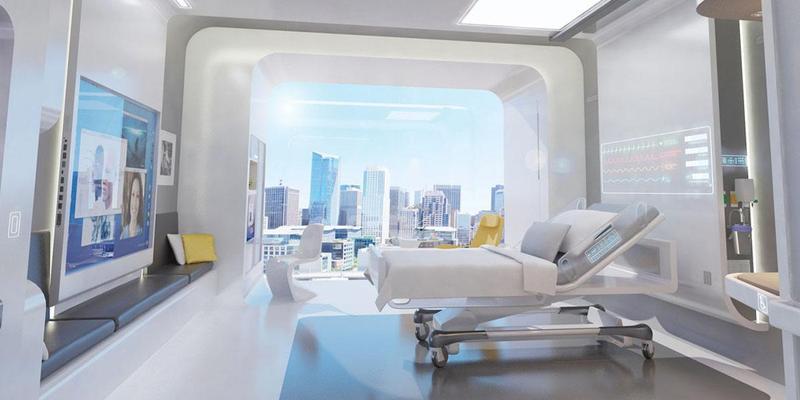By 2030, Hospitals May Be a Thing of the PastMar 29, 2018

Predictions from the co-chair of the World Economic Forum’s Future Council, Melanie Walker, say we’ll soon enter a post-hospital world due to advances in personalized medicine, health monitoring, and nanotechnology.
New and evolving technologies in medical science convince Walker we’ll live in a society not dependent on hospitals by 2030.
Brave New World
As the world of medicine is increasingly changed by biology, technology, communications, genetics, and robotics, predicting the outlook of the next few decades of medicine becomes harder. But that is exactly what Melanie Walker of the World Economic Forum does, and she predicts a bright new future for healthcare.
Walker is the co-chair of the World Economic Forum’s Future Council on neurotechnology and brain science and has been a doctor for the past 20 years.
“Nearly 20 years ago, when I graduated from medical school, the world of healthcare was dominated by breakthroughs in the field of biology,” Walker said in the article. “But, that is changing quickly because biology is being eaten by robotics and genetics as we evolve deeper into the networked age.”
The lynchpin of Walker’s predictions is the increasing adoption of new healthcare technologies, not just in hospitals but in homes. In fact, she says the rise of personalized medicine means we’re moving from hospitals to “home-spitals.”
We can already see these trends playing out. Many of the biggest diseases are largely vascular, and better understanding is making them more predictable and preventable. Accidents are likely to fall with the advent of automation and driverless tech and regenerative medicine is already stretching the lifespans in the most advanced countries.
Improvements in health monitoring will also make doctor’s visits rarer since they’ll acquire health data from your smartphone. And scanning technology will one day create devices that combine spectroscopy, magnetic resonance, and radiation in an all-in-one scanner.
Better Operations
The trend also points to less intrusive and more automated surgeries and operations.
Microbots will perform surgeries from inside your body and ingestible robotics will diagnose or operate on you before they dissolve.
There’ll also be an end to organ waiting lists. Advancements in 3D printing have made great leaps in printing artificial organs, bones, and even tissue.
The days of patients dying while they wait for an organ donor will soon be over.”
—Melanie Walker
One day, instead of getting prescriptions from your doctor, brain implants may read your symptoms and beam them directly to the smartphone. It will then print out a custom set of drugs to address the root of your problems.
Advancements in genomics will also ensure you know which diseases you’re most likely to get so you’re prepared or even able to edit them out of your genome.
This isn’t a prediction designed to be 100 percent as new advancements and discoveries are made every day. Rather, the predictions help set us on a path to advance the regulatory structure to accommodate future advances and get funding towards the right fields to achieve this vision.
Jelor Gallego/Futurism
Be the first to post a message!